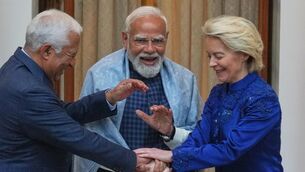Time to act against cowboys in food sector
With great justification, Bord Bia clearly took immense pride from and considerable credit for this very impressive export performance.
As a country we are badly in need of such good news stories amid all of the gloom in which we have been enveloped over the past five years. Alas, the satisfaction with the performance has proved short-lived as the Irish food industry has become embroiled in the farcical horse meat controversy, and unfortunately it is continuing to rumble on.














